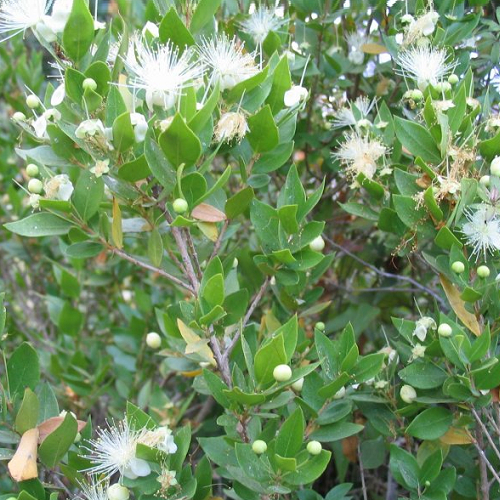| 28768 | Tan, Y., Yu, R., and Pezzuto, J. M. Betulinic acid-induced programmed cell death in human melanoma cells involves mitogen-activated protein kinase activation. Clin Cancer Res 2003;9(7):2866-2875. View abstract. |
| 28773 | de Sa, M. S., Costa, J. F., Krettli, A. U., Zalis, M. G., Maia, G. L., Sette, I. M., Camara, Cde A., Filho, J. M., Giulietti-Harley, A. M., Ribeiro Dos, Santos R., and Soares, M. B. Antimalarial activity of betulinic acid and derivatives in vitro against Plasmodium falciparum and in vivo in P. berghei-infected mice. Parasitol Res 2009;105(1):275-279. View abstract. |
| 28774 | Steele, J. C., Warhurst, D. C., Kirby, G. C., and Simmonds, M. S. In vitro and in vivo evaluation of betulinic acid as an antimalarial. Phytother Res 1999;13(2):115-119. View abstract. |
| 28775 | Bringmann, G., Saeb, W., Assi, L. A., Francois, G., Sankara Narayanan, A. S., Peters, K., and Peters, E. M. Betulinic acid: isolation from Triphyophyllum peltatum and Ancistrocladus heyneanus, antimalarial activity, and crystal structure of the benzyl ester. Planta Med 1997;63(3):255-257. View abstract. |
| 28777 | Rzeski, W., Stepulak, A., Szymanski, M., Sifringer, M., Kaczor, J., Wejksza, K., Zdzisinska, B., and Kandefer-Szerszen, M. Betulinic acid decreases expression of bcl-2 and cyclin D1, inhibits proliferation, migration and induces apoptosis in cancer cells. Naunyn Schmiedebergs Arch Pharmacol 2006;374(1):11-20. View abstract. |
| 28780 | Fulda, S. and Debatin, K. M. Sensitization for anticancer drug-induced apoptosis by betulinic Acid. Neoplasia 2005;7(2):162-170. View abstract. |
| 28783 | Poon, K. H., Zhang, J., Wang, C., Tse, A. K., Wan, C. K., and Fong, W. F. Betulinic acid enhances 1alpha,25-dihydroxyvitamin D3-induced differentiation in human HL-60 promyelocytic leukemia cells. Anticancer Drugs 2004;15(6):619-624. View abstract. |
| 28784 | Basu, S., Ma, R., Boyle, P. J., Mikulla, B., Bradley, M., Smith, B., Basu, M., and Banerjee, S. Apoptosis of human carcinoma cells in the presence of potential anti-cancer drugs: III. Treatment of Colo-205 and SKBR3 cells with: cis -platin, Tamoxifen, Melphalan, Betulinic acid, L-PDMP, L-PPMP, and GD3 ganglioside. Glycoconj J 2004;20(9):563-577. View abstract. |
| 28785 | Fulda, S. and Debatin, K. M. Betulinic acid induces apoptosis through a direct effect on mitochondria in neuroectodermal tumors. Med Pediatr Oncol 2000;35(6):616-618. View abstract. |
| 28787 | Fulda, S., Friesen, C., Los, M., Scaffidi, C., Mier, W., Benedict, M., Nunez, G., Krammer, P. H., Peter, M. E., and Debatin, K. M. Betulinic acid triggers CD95 (APO-1/Fas)- and p53-independent apoptosis via activation of caspases in neuroectodermal tumors. Cancer Res 1997;57(21):4956-4964. View abstract. |
| 28788 | Fulda, S., Jeremias, I., and Debatin, K. M. Cooperation of betulinic acid and TRAIL to induce apoptosis in tumor cells. Oncogene 2004;23(46):7611-7620. View abstract. |
| 28789 | Rieber, M. and Rieber, M. S. Signalling responses linked to betulinic acid-induced apoptosis are antagonized by MEK inhibitor U0126 in adherent or 3D spheroid melanoma irrespective of p53 status. Int J Cancer 2006;118(5):1135-1143. View abstract. |
| 28791 | Chen, Z., Wu, Q., Chen, Y., and He, J. Effects of betulinic acid on proliferation and apoptosis in Jurkat cells and its in vitro mechanism. J Huazhong Univ Sci Technolog Med Sci 2008;28(6):634-638. View abstract. |
| 28795 | Rabi, T., Shukla, S., and Gupta, S. Betulinic acid suppresses constitutive and TNFalpha-induced NF-kappaB activation and induces apoptosis in human prostate carcinoma PC-3 cells. Mol Carcinog 2008;47(12):964-973. View abstract. |
| 28796 | Kasperczyk, H., La Ferla-Bruhl, K., Westhoff, M. A., Behrend, L., Zwacka, R. M., Debatin, K. M., and Fulda, S. Betulinic acid as new activator of NF-kappaB: molecular mechanisms and implications for cancer therapy. Oncogene 2005;24(46):6945-6956. View abstract. |
| 28797 | Ganguly, A., Das, B., Roy, A., Sen, N., Dasgupta, S. B., Mukhopadhayay, S., and Majumder, H. K. Betulinic acid, a catalytic inhibitor of topoisomerase I, inhibits reactive oxygen species-mediated apoptotic topoisomerase I-DNA cleavable complex formation in prostate cancer cells but does not affect the process of cell death. Cancer Res 2007;67(24):11848-11858. View abstract. |
| 29106 | Nyasse, B., Nono, J. J., Nganso, Y., Ngantchou, I., and Schneider, B. Uapaca genus (Euphorbiaceae), a good source of betulinic acid. Fitoterapia 2009;80(1):32-34. View abstract. |
| 29109 | Melzig, M. F. and Bormann, H. Betulinic acid inhibits aminopeptidase N activity. Planta Med 1998;64(7):655-657. View abstract. |
| 29110 | Fujioka, T., Kashiwada, Y., Kilkuskie, R. E., Cosentino, L. M., Ballas, L. M., Jiang, J. B., Janzen, W. P., Chen, I. S., and Lee, K. H. Anti-AIDS agents, 11. Betulinic acid and platanic acid as anti-HIV principles from Syzigium claviflorum, and the anti-HIV activity of structurally related triterpenoids. J Nat Prod 1994;57(2):243-247. View abstract. |
| 71657 | Kashiwada, Y., Wang, H. K., Nagao, T., Kitanaka, S., Yasuda, I., Fujioka, T., Yamagishi, T., Cosentino, L. M., Kozuka, M., Okabe, H., Ikeshiro, Y., Hu, C. Q., Yeh, E., and Lee, K. H. Anti-AIDS agents. 30. Anti-HIV activity of oleanolic acid, pomolic acid, and structurally related triterpenoids. J Nat Prod 1998;61(9):1090-1095. View abstract. |





